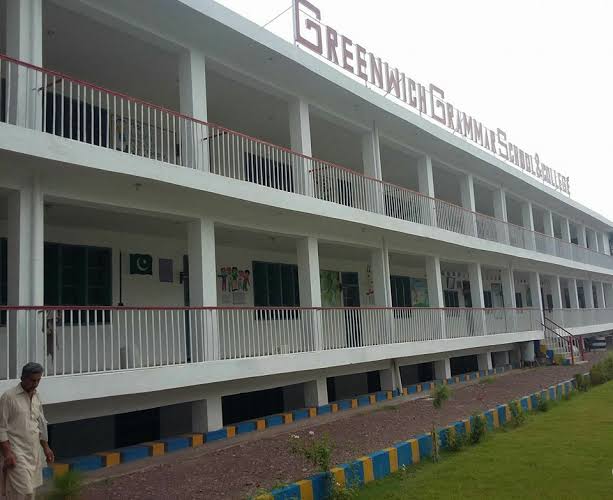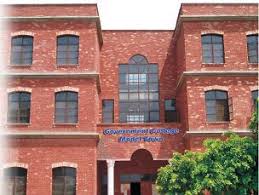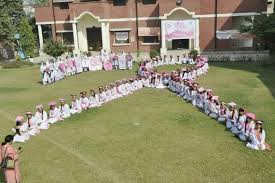If you have to choose any field other than a doctor or dentist, then the Allied Health Sciences fields are the most suitable option for you. This is so because they offer a wide range of career opportunities in healthcare. Also, they allow you to contribute directly to patient care, diagnosis, treatment, and rehabilitation.
Many colleges and universities of Pakistan offer numerous BS degree programmes in Allied Health Sciences. These programmes are intended to prepare young learners with the scientific knowledge and practical skills required to work in hospitals, clinics, and laboratories.
This article will explore the Allied Health Sciences and its related fields. Moreover, we will explore how this field is different from doctors. Further, we talk about the role and importance of the health science field in Pakistan. Later, will discuss the benefits, scope, and career opportunities of allied health fields.
Let’s start!
What are Allied Health Sciences?
The medical professions, excluding doctors and dentists, that support the diagnosis, treatment, and prevention of illness or disease, are called Allied Health. All health professionals work toward the mutual goal of offering the best possible service in patient care and health promotion.
Fields of Allied Health
There are many fields included in allied health sciences. Some of the fields included in this healthcare spectrum include:
- Medical laboratory technology
- Radiology
- Physiotherapy
- Cardiology
- Surgical technology
- Nutrition and dietetics
- Optometry
- Anesthesia technology
- Clinical laboratory technology
- Dental hygiene
- Emergency medical services
- Occupational therapy
- Speech-language
- Pathology
- Audiology
In short, allied health fields allow you to stay connected to the medical field, make an impactful difference in people’s lives, and build a rewarding and respected career.
Why Allied Health Sciences is Important in Pakistan?
Like globally, allied health fields are equally important in Pakistan. The importance of this field is show by the following factors:
There is a high demand for allied health professionals in Pakistan. This is so because our hospitals, clinics, labs, and diagnostic centers require skilled healthcare professionals to handle equipment, perform tests, imaging and therapy effectively. Thus, offers tremendous scope, stability, and respect.
Many Allied Health degrees are recognised worldwide. Many Pakistani graduates from noble institutes can find jobs in Gulf countries, UK, Canada, Australia, and Europe, particularly in lab technology, physiotherapy, and imaging.
The best thing about Allied Health Sciences is that allied health professionals gain legal recognition in Pakistan. They can get through the Allied Health Professionals Council (AHPC) of Pakistan. This implies better regulation, vibrant roles, licensing, and more growth opportunities.
Many colleges and universities in Pakistan offer BS degrees in Allied Health Sciences. These are 4-year programs that students can enroll in after F.Sc (Pre-Medical) or equivalent.
How Allied Health Professionals Different from Doctors and Nurses?
Doctors complete MBBS and specialise through the FCPS center on diagnosis and prescription. While nurses usually pursue BS Nursing or RN programs and specialise in patient care and coordination. Also, doctors fall under the PMDC regulation, while nurses are supervised by the PNC in Pakistan.
On the other hand, allied health professionals in Pakistan follow pathways such as F.Sc, BS (Hons), M.Phil, or PhD. Their work focuses on diagnostics, therapy, rehabilitation, and surgical support. Moreover, allied health professionals are overseen by AHPC and HEC in Pakistan.
What role do Allied Health Professionals play in the Healthcare System of Pakistan?
Allied Health Professionals in Pakistan contribute significantly to the healthcare spectrum:
- Professionals provide direct patient care.
- They also support medical teams, manage data, and enhance public health systems.
- Moreover, they deliver timely and accurate lab and imaging results.
- Similarly, they help patients recover and regain independence in therapy and rehabilitation.
Why Study Allied Health Sciences Matters?
If you are a student thinking about a field other than MBBS or BDS, then allied health sciences is a good option due to the following reasons:
Indispensable Support to the Healthcare System
Allied health professionals work alongside doctors and nurses. They are the greatest support to the healthcare system because they offer diagnostic, therapeutic, and technical care that confirms precise treatment and patient recovery.
Cultivating Patient Outcomes
All the professionals of allied health help in early detection of disease, progress monitoring, and designing rehabilitation programs. This will help in improved recovery rates, less complications, and better quality of life for patients.
Pathway to Higher Education
You will have the opportunity to pursue master’s and PhD degrees in specialised area. This helps you to move into hospital management, public health, or teaching.
Bridging Science and Care
Allied health sciences link scientific knowledge with proactive patient care. This incorporation ensures healthcare is both evidence-based and patient-centered.
Growing Career Opportunities
The demand for allied health professionals is rising rapidly because healthcare systems are expanding globally. Allied health graduates can work in a variety of places, like hospitals, clinics, diagnostic centers, research labs, public health, NGOs, and sports or wellness industries.
Community Health and Prevention
Many allied health fields educate communities about healthy lifestyles, nutrition, and disease prevention. This is so because they focus on focus on preventive care. Thus, decreases the overall burden on healthcare systems.
Innovation and Technology
All the allied health professionals use and develop cutting-edge technology. They play a prominent role in implementing innovations that make healthcare faster, safer, and more accurate.
Human Connection
Allied health professionals build strong human connection by offering empathy, support, and motivation to patients during vulnerable times. Beyond science, this field make healthcare a deeply human experience.
Scope and Career Prospects of Allied Health Sciences
Moreover, there is a wide scope of allied health sciences fields. Due to developments in medical technology and the higher need for skilled healthcare workers, allied health fields provide job stability, global demand, and continuous professional growth.
Moreover, professionals of allied health sciences play a substantial role in the healthcare system. They support doctors, improve patient outcomes, and ensure the smooth working of medical facilities. Some important and widely recognised rewarding allied health careers include:
- Audiologists
- Speech and language pathologists
- Physical therapists
- Occupational therapists
- Imaging specialists
- Dental hygienists and assistants
- Health educators
- Genetic counselors
- Mental health counselors
- Pharmacy aides
- Surgical technologists
Conclusion
The scope of Allied Health continues to expand locally and internationally. Allied Health Sciences is a dynamic part of the healthcare system that supports doctors and ensures patients obtain complete care. Allied health professionals perform the tests, operate medical equipment, and assist in treatment and recovery. This field holds great importance and offers huge career opportunities in hospitals, laboratories, and research centers in Pakistan.



